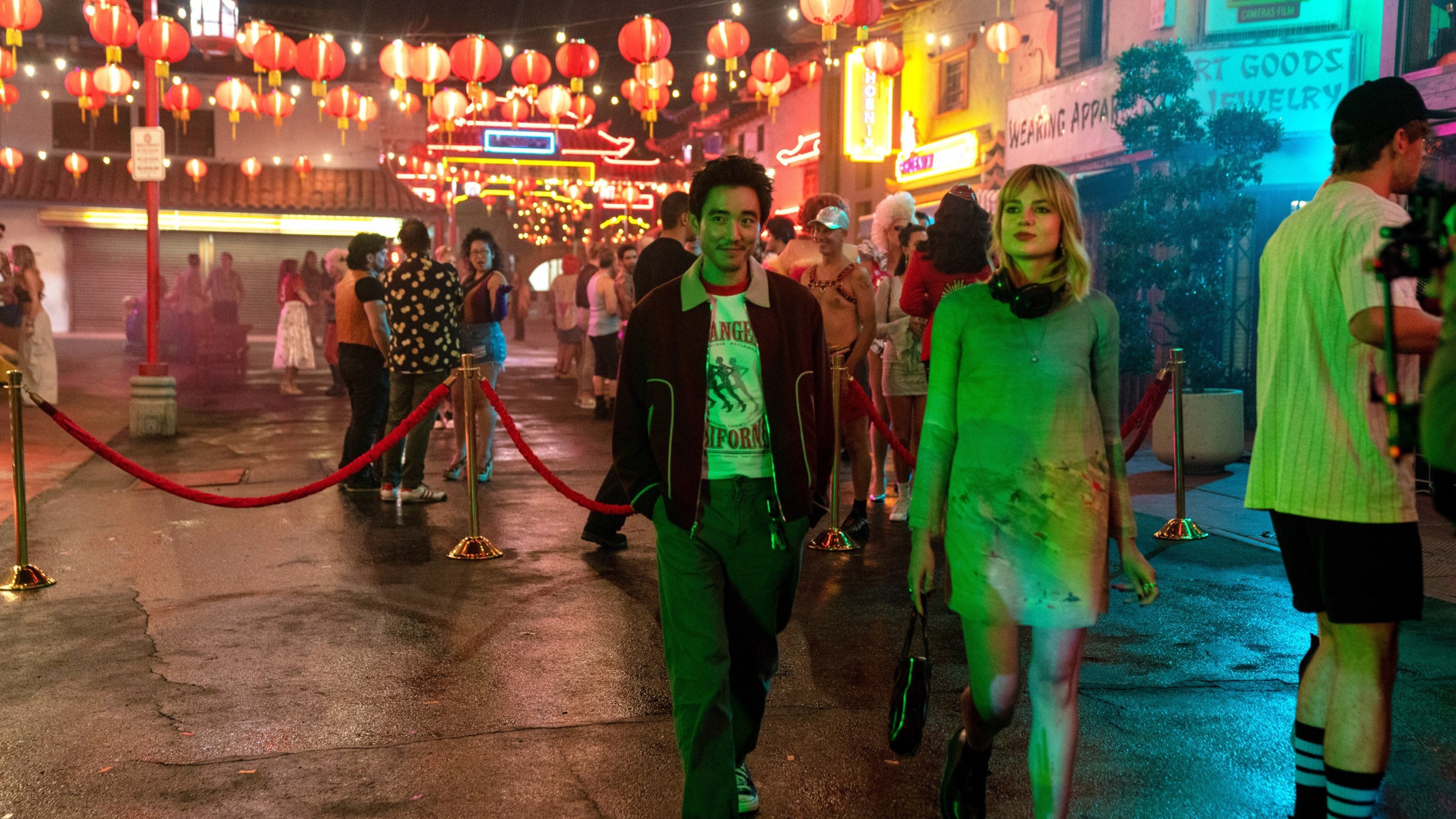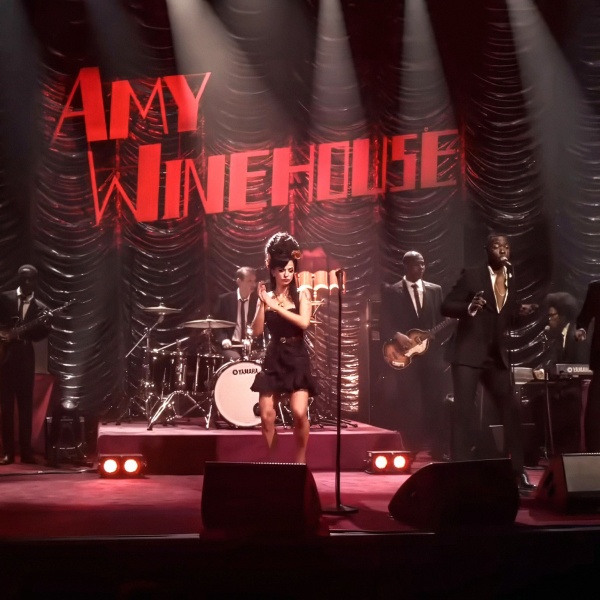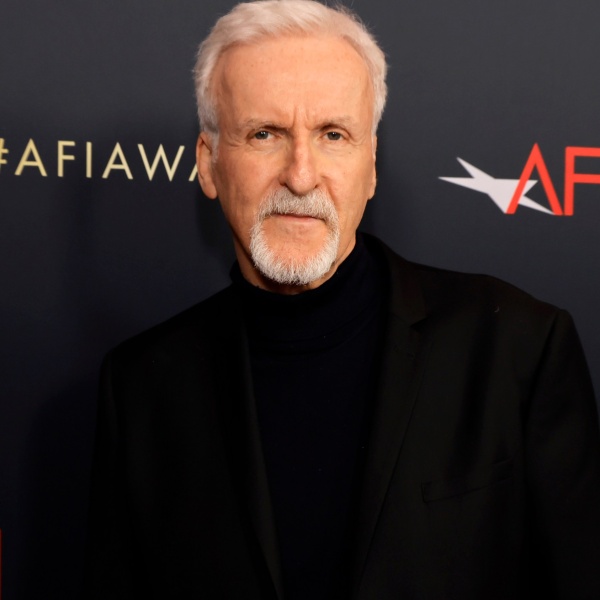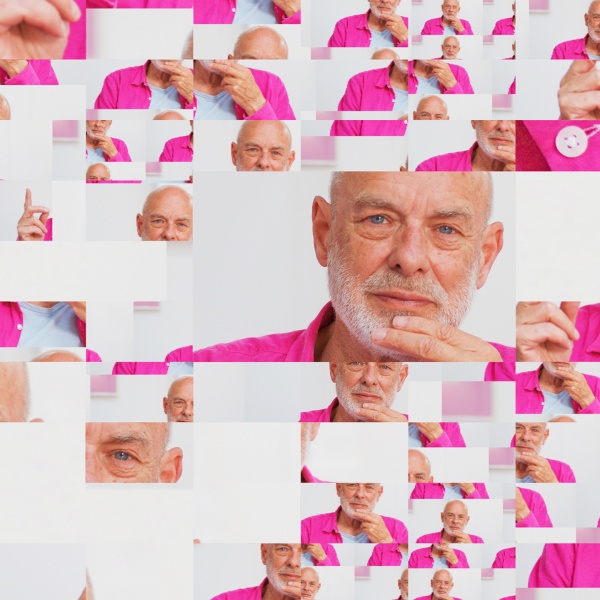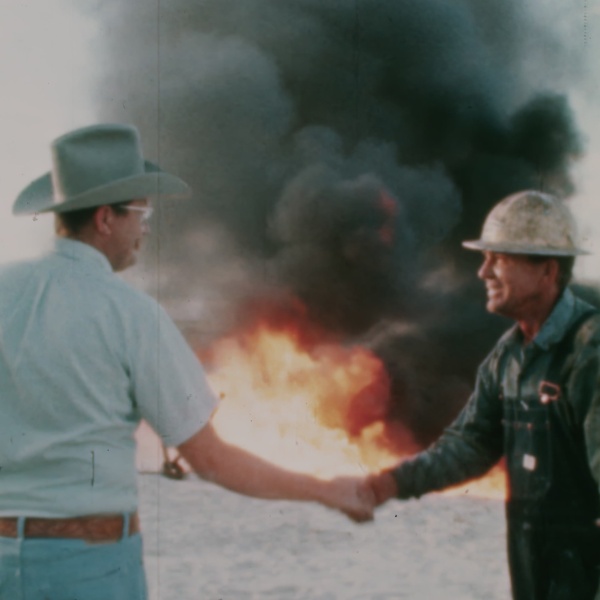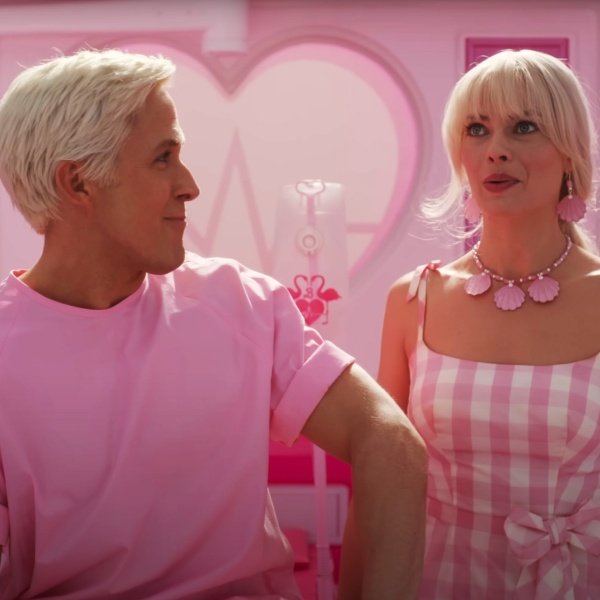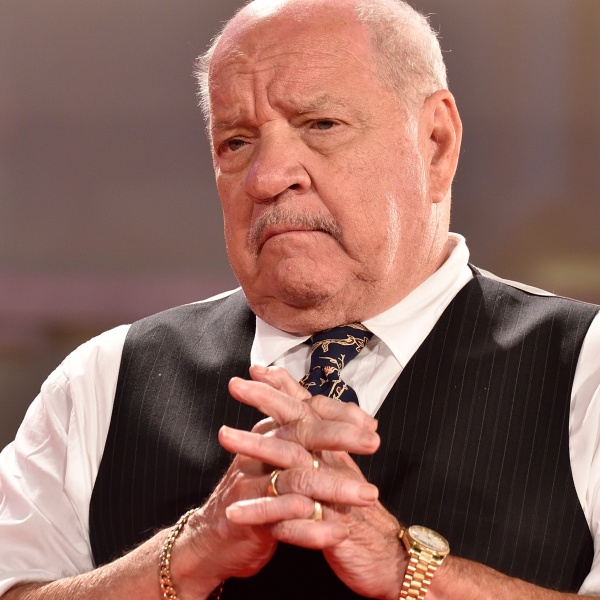It’s been two years since Harriet’s (Lucy Boynton) beloved boyfriend Max (David Corenswet, soon to be Superman) died in a car crash she blames herself for. But she still sees him everywhere — literally, thanks to a natty time travel device that filmmaker Ned Benson deploys quickly and smartly in his “The Disappearance of Eleanor Rigby” follow-up, “The Greatest Hits.” You know how a song can take you back to a moment of your life? For Harriet, who also suffered a nasty blow to the head in the same accident that took Max, that’s life. Every time she hears a song she and Max listened to together, bam, she’s launched briefly back in time to the first moment the pair heard said song for the first time.
For someone with a severely broken heart, it’s agony. And for someone who thinks she can change the past via these short visits, well, it might even be worse. When we first meet Harriet, she’s gone full-“Memento,” kitting out her cute Los Angeles apartment with a wall-spanning timeline that traces her entire relationship with Max, including the songs they loved. She’s surrounded by boxes of LPs (some marked “tested,” a few “untested”), and when she’s ready, she puts on a record, sits herself down in a cushy chair, faces two speakers, and lets the music fly, Maxell commercial style. (The film, is, of course, kitted out with a fantastic soundtrack, including covers and remixes, and a generous dash of Roxy Music to hold it together.)
Hazy flashbacks to their love story reveal the broad shape of Harriet and Max’s relationship, all dreamy dancing and sexy splashes through the ocean. We, of course, know this all somehow ended — and badly, as no one ever puts together a string-laced timeline who wasn’t really going through it. Meanwhile, Harriet’s current disheveled, drunk state hints that this is far more than just the usual heartbreak blues.
Benson, best known for his three-pronged romance “The Disappearance of Eleanor Rigby,” doesn’t waste too much time getting into the time travel conceit that shapes the film, and we soon see Harriet cueing up a song, and promptly being plunged back into time. We learn that Harriet isn’t just slipping back into her memories via her enviable record collection for fun (though she does that, too). She’s also in search of the moment (and the unknown song that unwittingly soundtracked it) Harriet could have changed anything, the moment she might have stopped the accident that took Max and ruined her life.
When she’s not time-traveling via song, Harriet does everything she can to minimize aural intrusions in her life: She wears earplugs and headphones to go outside, works at a library (the world’s best quiet zone), attends group therapy (where she stays mostly mute, despite the best attempts of a kind therapist, played by Retta), and doesn’t even see her best friend Morris (a lovely Austin Crute) until he’s told her it’s “safe” (read: he’s not playing any songs on her greatest hits list). She’s lost a lot of friends. She’s given up her dreams of working in record production. She’s got nothing but a desperate (and potentially crazy) quest to right the wrongs she blames for ending all her dreams.

Benson, who also wrote the film’s screenplay, knows his way around heartbreak, and despite the elevated nature of the story — she time travels, for chrissakes — always finds room to add genuinely relatable elements to Harriet’s incredible plight. Heartbreak doesn’t just bust you open, but everyone around you. Harriet may fixate on things she could potentially change (again, via time travel), but anyone who has been through the end of a relationship that was precious to them can relate to her desperation to get to the root causes and alter them.
And just when it seems Harriet’s heartbreak — and the narrow world it’s confined her to — is forever, something crazy happens: she meets a new guy. Try explaining all of this to him. Fortunately enough, she meets David (the charming Justin H. Min) in her grief support group, where he arrives with his own troubles and traumas to spare. If the flashbacks we get of Harriet and Max’s relationship are good, the here-and-now attraction between Harriet and David is even better, and Benson and his cast deftly thread the stories together, making us care equally about both.

Perhaps Harriet feels that way too, but even as she’s falling for David (and trying to make new memories with new songs), she can’t quite shake Max. And when Benson leans into the more “timey-wimey” elements of his story, Harriet’s different love stories, her different realities, come crashing together in a myriad of ways. While not every choice works — spending time alone with David, for instance, pulls the audience away from Harriet’s unique perspective and Boynton’s sprightly performance, which is so compelling to be part of and to observe — and it all leads to a classic “now prove you’re actually time traveling!” trope, the real human emotion of “The Greatest Hits” keeps it steady.
Eventually, it’s Harriet’s dedicated best pal, Morris, who hits the hardest beats of Benson’s film, pushing Harriet to face the full impact of her aching sense of nostalgia. Where would Harriet and Max be if the accident never happened, Morris wonders. Where would Harriet be? What a hell of a thought to drop into her world, into this film. And once Harriet starts moving away from her desperate attempts to save Max, she has to reckon with something far greater: how to save herself. That will take more than a record or two, more than a cute time travel twist, and damn if “The Greatest Hits” doesn’t manage to end it on a high note.
Grade: B
“The Greatest Hits” premiered at SXSW 2024. Searchlight Pictures will release it in select theaters on Friday, April 5 and on Hulu’s streaming platform on Friday, April 12.
